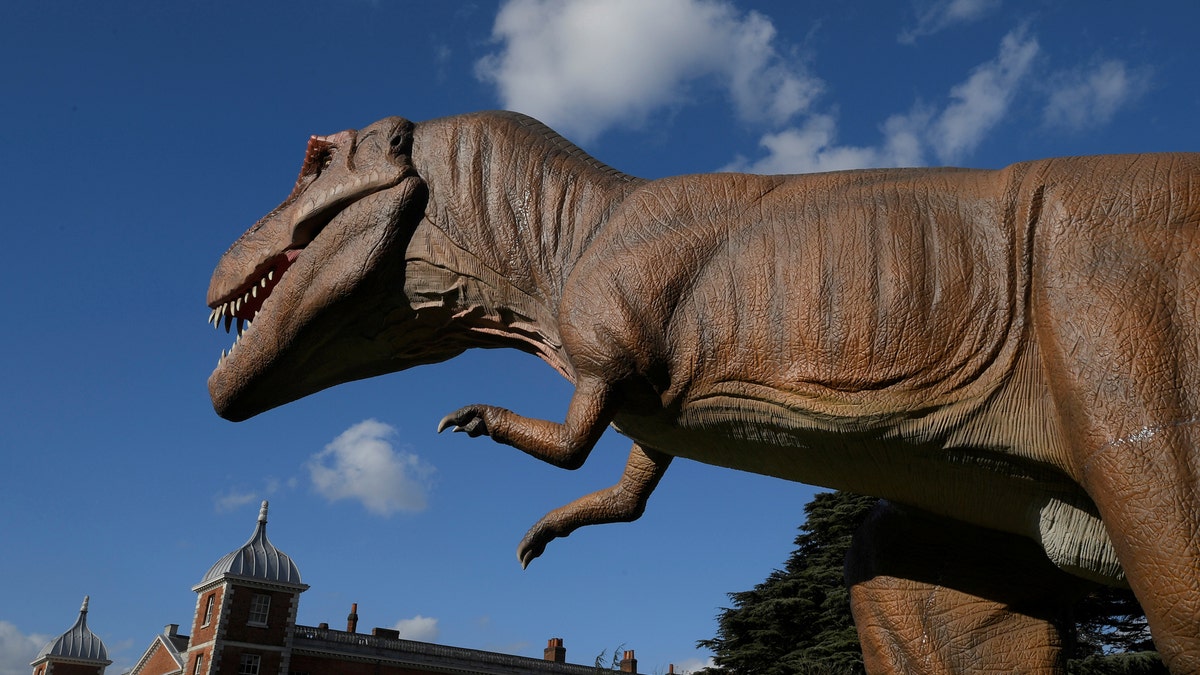
File photo: An animatronic life-size dinosaur is seen ahead of an interactive exhibition, Jurassic Kingdom, at Osterley Park in west London, Britain, March 31, 2017. (REUTERS/Toby Melville)
SALT LAKE CITY (AP) — Visitors at a Utah state park have been dislodging dinosaur tracks imprinted in sandstone and throwing the pieces into a nearby lake, officials said.
The site lined with hundreds of the prehistoric raptor tracks has been heavily damaged in the past six months, Red Fleet State Park Manager Josh Hansen said.
Hansen recently caught a juvenile who was throwing slabs of stone into the reservoir, he said. He heard two thumps into the water before docking his boat. Then he saw the person holding two toe imprints from a partial dinosaur track.
"I saved that one," Hansen said. "He had already thrown multiple (tracks in the water)."
Many tracks are noticeable walking through the landscape, but others are not. Utah Division of State Parks spokesman Devan Chavez said his conservative estimate is that at least 10 of the larger, more visible footprints, which range from 3 to 17 inches (8 to 43 centimeters), disappeared in the past six months.
"It's become quite a big problem," Chavez said. "They're just looking to throw rocks off the side. What they don't realize is these rocks they're picking up, they're covered in dinosaur tracks."
Some of the slabs sink to the bottom of Red Fleet Reservoir, some shatter upon hitting the surface and others dissolve entirely.
"Some of them are likely lost forever," Chavez said.
The park is considering sending a diving team to recover what it can from the lakebed. For now, it's putting up more signs asking tourists not to touch the sandstone.
"You'd think common sense would provide guidance, but it's not coming across in people's mind," said Hansen, who's been the park's manager since March. He's responded to two cases in the past two weeks.
This dry and dusty desert area was once a bog filled with mud and moss. Paleontologists believe the dilophosaurus, part of the raptor family, ambushed other dinosaurs while they were resting or drinking from the swamp.
Though their three-toed footprints are not fossils, they're treated as such under Utah code. Anyone who destroys one could be charged with a felony, though no charges have been filed recently.
Three teens were tried in juvenile court for destruction of a paleontological site at Red Fleet State Park in 2001.
"We're going to be cracking down on it a lot more," Chavez said.








































